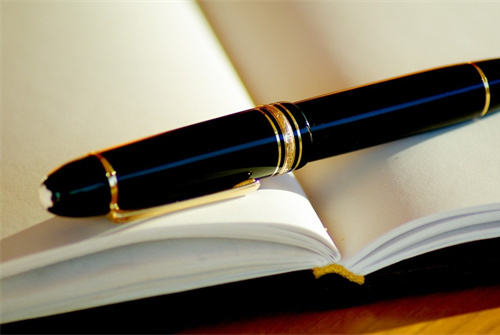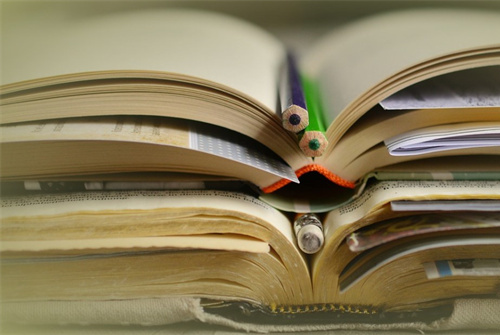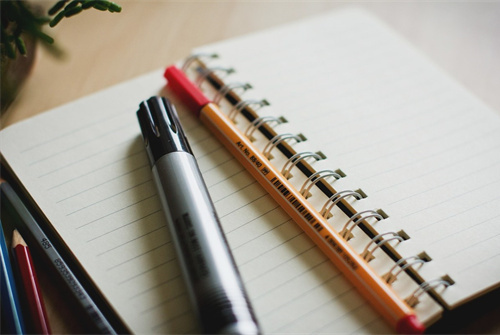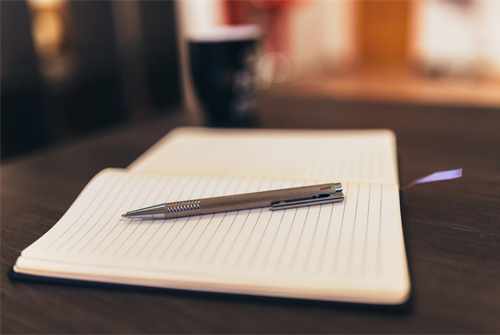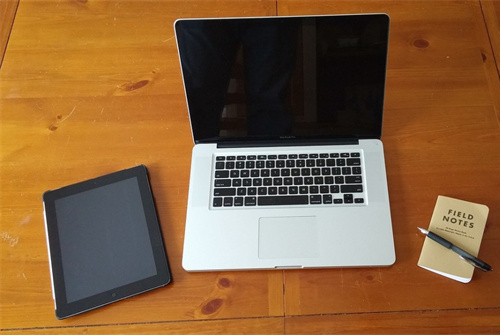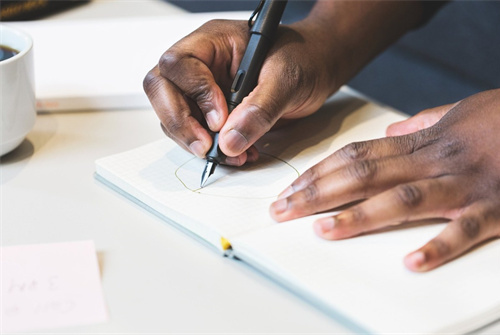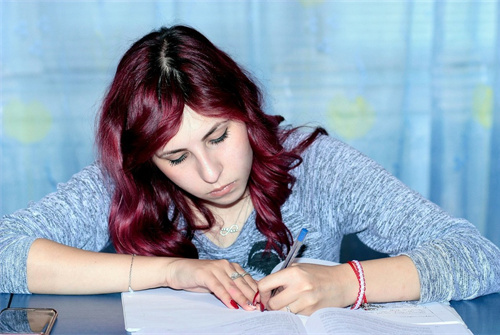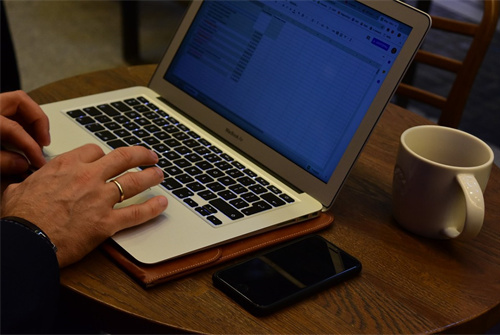【简介】感谢网友“网络整理”参与投稿,这里小编给大家分享一些,方便大家学习。
关于元宵节灯笼的诗句
紫竹听晓 一 元宵佳节打灯笼,万朵烟花绿带红。以下是一句话语录网为大家分享的`关于元宵节的诗词,大家一起去欣赏一下吧!
《上元夜》
崔液(唐)
玉漏铜壶且莫催,铁关金锁彻夜开;
谁家见月能闲坐,何处闻灯不看来。
《正月十五夜》
苏道味(唐)
火树银花合,星桥铁锁开,
灯树千光照。明月逐你来。
游妓皆穠李,行歌尽落梅。
金吾不禁夜,玉漏莫相催。
《元夕无月》
丘逢甲(清)
三年此夕无月光,明月多应在故乡。
欲向海天寻月去,五更飞梦渡鲲洋。
《汴京元夕》
李梦阳(明)
中山孺子倚新妆,郑女燕姬独擅场。
齐唱宪王春乐府,金梁桥外月如霜。
《元夕影永冰灯》
唐顺之(清)
正怜火树千春妍,忽见清辉映月阑。
出海鲛珠犹带水,满堂罗袖欲生寒。
烛花不碍空中影,晕气疑从月里看。
为语东风暂相借,来宵还得尽余欢。
《元夕于通衢建灯夜升南楼》
隋炀帝(隋)
法轮天上转,梵声天上来;
灯树千光照,花焰七枝开。
月影疑流水,春风含夜梅;
燔动黄金地,钟发琉璃台。
《生查子元夕》
(宋)欧阳修
去年元夜时,花市灯如昼。
月到柳梢头,你约黄昏后。
今年元夜时,月与灯依旧。
不见去年你,泪湿春衫袖。
《青玉案元夕》
(宋)辛弃疾
东风夜放花千树,更吹落,星如雨。
宝马雕车香满路,凤萧声动,壶光转,一夜鱼龙舞。
蛾儿雪柳黄金缕,笑语盈盈暗香去。
众里寻他千百度,蓦然回首,那你却在,火阑珊处。
《京都元夕》
(元)元好问
袨服华妆着处逢,六街灯火闹儿童。
长衫我亦何为者,也在游你笑语中。
《折桂令元宵》
(元)失名
爱元宵三五风光,月色婵娟,灯火辉煌。
月满冰轮,灯烧陆海,你踏春阳。
三美事方堪胜赏,四无情可恨难长。
怕的是灯暗光芒,你静荒凉,角品南楼,月下西厢。
关于元宵节看灯笼
摘要:元宵节是农历正月的第十五天,这是新年的第一次满月,象征着和睦和团圆。元宵节是春节的一个重要组成部分,也象征着春节长假的正式结束。Lantern Festival falls on the fifteenth day of the first lunar month. This is the first full moon of the new year, symbolizing unity and perfection. Lantern Festival is an important part of Spring Festival , and marks the official end of the long holiday.
Lantern Festival is a China’s traditional festival. It is celebrated on the fifteenth day of the first month of the lunar year.
I,antern Festival is one of the biggest holidays in China. Several days before Lantern Festival, people begin to make lanterns. Lanterns are made in the shape of different animals, vegetables, fruits and many, other things. While making lanterns people usually write riddles on lanterns. On the eve of Lantern Festival, all the lanterns are hung up.
On Lantern Festival people go outside to have a look at the lanterns and guess the riddles on the lanterns. Perhaps you call see some wonderful folk performances,Dragon Dance and Yangko. Everything is very interesting and everyone is very happy. Our life is rich and varied.
元宵节英语作文:元宵节
The first day of the Lunar New Year is "the welcoming of the gods of the heavens and earth."Many people abstain from meat on the first day of the new year because it is believed that this will ensure long and happy lives for them.
On the second day, the Chinese pray to their ancestors as well as to all the gods. They are extra kind to dogs and feed them well as it is believed that the second day is the birthday of all dogs.
The third and fourth days are for the sons-in-laws to pay respect to their parents-in-law.
The fifth day is called Po Woo. On that day people stay home to welcome the God of Wealth. No one visits families and friends on the fifth day because it will bring both parties bad luck.
On the sixth to the 10th day, the Chinese visit their relatives and friends freely. They also visit the temples to pray for good fortune and health.
The seventh day of the New Year is the day for farmers to display their produce. These farmers make a drink from seven types of vegetables to celebrate the occasion. The seventh day is also considered the birthday of human beings. Noodles are eaten to promote longevity and raw fish for success.
On the eighth day the Fujian people have another family reunion dinner, and at midnight they pray to Tian Gong, the God of Heaven.
The ninth day is to make offerings to the Jade Emperor.
The 10th through the 12th are days that friends and relatives should be invited for dinner. After so much rich food, on the 13th day you should have simple rice congee and mustard greens (choi sum) to cleanse the system.
The 14th day should be for preparations to celebrate the Lantern Festival which is to be held on the 15th night.
元宵节作文:The Lantern Festival
The Lantern Festival falls on the 15th day of the 1st lunar month, usually in February or March in the Gregorian calendar. As early as the Western Han Dynasty (206 BC-AD 25), it had become a festival with great significance.
This day's important activity is watching lanterns. Throughout the Han Dynasty (206 BC-AD 220), Buddhism flourished in China. One emperor heard that Buddhist monks would watch sarira, or remains from the cremation of Buddha's body, and light lanterns to worship Buddha on the 15th day of the 1st lunar month, so he ordered to light lanterns in the imperial palace and temples to show respect to Buddha on this day. Later, the Buddhist rite developed into a grand festival among common people and its influence expanded from the Central Plains to the whole of China.
Till today, the lantern festival is still held each year around the country. Lanterns of various shapes and sizes are hung in the streets, attracting countless visitors. Children will hold self-made or bought lanterns to stroll with on the streets, extremely excited.
"Guessing lantern riddles" is an essential part of the Festival. Lantern owners write riddles on a piece of paper and post them on the lanterns. If visitors have solutions to the riddles, they can pull the paper out and go to the lantern owners to check their answer. If they are right, they will get a little gift. The activity emerged during people's enjoyment of lanterns in the Song Dynasty (960-1279). As riddle guessing is interesting and full of wisdom, it has become popular among all social strata.
People will eat yuanxiao, or rice dumplings, on this day, so it is also called the "Yuanxiao Festival." Yuanxiao also has another name, tangyuan. It is small dumpling balls made of glutinous rice flour with rose petals, sesame, bean paste walnut meat, dried fruit, sugar and edible oil as filling. Tangyuan can be boiled, fried or steamed. It tastes sweet and delicious. What's more, tangyuan in Chinese has a similar pronunciation with "tuanyuan”, meaning reunion. So people eat them to denote union, harmony and happiness for the family.
元宵节英文介绍:
自汉朝(公元前206年—公元221年)起,元宵节就已成为了中国新年庆祝活动中的一部分了。一般农历的正月十五为元宵节,这一天也标志着新年庆祝活动的结束。
The Lantern Festival has been part of Chinese New Year celebrations since the Han Dynasty (206 BC- 221 AD). Usually held on the 15th day of the first month of the lunar calendar, it marks the end of New Year festivities.
It is said that the holiday evolved from an ancient Chinese belief that celestial spirits could be seen flying about in the light of the first full moon of the lunar calendar. To aid them in their search for the spirits they used torches. These torches gave way to lanterns of every shape, size and colour.
The Lantern Festival is also popularly referred to as the Chinese Valentine’s Day because in days of old it gave girls and boys a rare chance to go out in the evening and mingle. Today, lantern festivals are held each year in China, Hong Kong, Singapore and Taiwan to mark the end of Chinese New Year celebrations. Competitions are held to select the best lanterns.
The lanterns
The lanterns come in all shapes and sizes. Some are created in the form of animals, insects, flowers, people or even machines or buildings. Others depict scenes from popular stories teaching filial piety and traditional values. A favourite subject is the zodiac animal of the year - which in 2024 will be the horse.
Lantern riddles (cai deng mi)
Part of the lantern festival tradition involves a game to guess riddles attached to the lanterns. In the old days the riddles were obscure literary allusions to the Chinese classics and so were mainly the preserve of the educated classes.
Special foods
Like most Chinese festivals, the Lantern Festival has its own special food, called "tang yuan". These are round, glutinous rice dumplings with sweet or spicy fillings. The dumplings are said to symbolise both the first full moon and family unity and completeness.
Entertainment
Stilt-walking, drumming and dragon and lion dancing are all traditional forms of festival entertainment. In Asia, it is not uncommon to see processions of hundred-foot long dragons, lit with flashing eyes and luminous bodies, accompanied by pounding drums, cymbals and brass instruments.(ChinaDaily)
相关内容
据说元宵节由古代中国的一个传说演化而来,传言每至农历第一个月圆之夜,便可看到天上飞动的神灵。为了更容易寻找神灵,他们都会用一些火把照明,而这些火把也逐渐由一些形状、大小、颜色各异的灯笼所取代。
元宵节广受喜爱的另一个原因在于:它也被看做中国的情人节,因为在过去,这一天少男少女们可以利用这个宝贵的机会晚上一起出去约会。而今,在中国、香港、新加坡和台湾每年都会欢庆元宵节,以此作为中国新年庆祝的收尾。同时这些地方每年也会举办一些比赛来评选最佳彩灯。
灯笼
灯笼的`形状各异,大小不同。一些灯笼会扎成动物、昆虫、花朵、人甚至是机器或建筑物的形状。还有一些则描绘了许多广为流传故事的情景,用来宣扬孝道以及传统价值观。最受大众喜爱则为当年生肖动物的主题彩灯,2024年会是马年。
猜灯谜
元宵节传统习俗中还有一部分是关于猜灯谜的游戏。在过去,这些谜语大多出自于模糊的文学典故和中国古典之中,所以猜灯谜以前多为知识份子的“领地”。
特色小吃
与大多数中国节日一样,元宵节同样有自己的特色小吃,称为“汤圆”(也叫“元宵”)。汤圆外形圆圆的,外皮由糯米制成,内馅或甜或辣。人们都说汤圆有两个象征之意,一为农历的第一个月圆,二为家庭团聚圆满。
娱乐活动
踩高跷,敲鼓和舞龙舞狮都是一些传统节日的娱乐活动。在亚洲,人们经常能看到这样的场景:数百英尺的长龙,闪闪发光的眼睛和亮晶晶的身躯,周围还有敲锣打鼓、吹奏乐器的队伍。
相关文章推荐:
【第1句】:八年级英语作文 元宵节
【第2句】:介绍元宵节的英语作文
【第3句】:描写元宵节的英语作文
【第4句】:关于元宵节英语作文
【第5句】:"闹元宵"的英语作文
【第6句】:元宵节的初二英语作文
描写元宵节灯笼的诗句
元宵节同样也是一个喜气洋洋的节日,这天人们都会吃元宵,挂彩灯,猜灯谜。以下是小编整理的描写元宵节灯笼的诗句,一起看看有哪些吧。
《七律。十三元(上元节)》
月色蒙胧灯火喧,星光闪烁映兰轩。天台午夜莲花宴,楼宇春光桃李园。
吾蘸江头挥墨宝,君遨瀚海领清源。添诗共贺新年好,做赋温馨度上元。
《生查子》
欧阳修
去年元夜时,花市灯如昼。月到柳梢头,人约黄昏后。
今年元夜时,月与灯依旧。不见去年人,泪满春衫袖。
《忆秦娥》
朱淑真
弯弯曲,新年新月钩寒玉。钩寒玉,凤鞋儿小,翠眉儿蹙。
闹蛾雪柳添妆束,烛龙火树争驰逐。争驰逐,元宵三五,不如初六。
《元夜即席》
元宵清景亚元正,丝雨霏霏向晚倾。桂兔韬光云叶重,烛龙衔耀月轮明。
烟空但仰如膏润,绮席都忘滴砌声。更待今宵开霁后,九衢车马未妨行。
《元夜》
朱淑真
火树银花触目红,揭天鼓吹闹春风。新欢入手愁忙里,旧事惊心忆梦中。
但愿暂成人缱绻,不妨常任月朦胧。赏灯那得工夫醉,未必明年此会同。
《元夕影永冰灯》 (清)唐顺之
正怜火树千春妍,忽见清辉映月阑。出海鲛珠犹带水,满堂罗袖欲生寒。
烛花不碍空中影,晕气疑从月里看。 为语东风暂相借,来宵还得尽余欢。
《客中过上元节》 熊亨瀚
大地春如海,男儿国是家。龙灯花鼓夜,长剑走天涯。
【延伸阅读】
花灯
肥水②东流无尽期,当初不合种相思③。梦中未比丹青④见,暗里忽惊山鸟啼。
春未绿,鬓先丝,人间别久不成悲。谁教岁岁红莲夜⑤,两处沉吟各自知。
【注释】
①元夕:旧历正月十五元宵节。
②肥水:源出安微合肥紫蓬山,东南流经将军岭,至施口入巢湖。
③种相思:留下相思之情,谓当初不应该动情,动情后尤不该分别。
④丹青:泛指图画,此处指画像。
⑤红莲夜:指元夕。红莲,指花灯。
【译文】
那肥水汪洋向东流,永远没有停止的时候。早知今日凄凉,当初真不该苦苦相思。梦里的相见总是看不清楚,赶不上看画像更加清晰,而这种春梦也常常无奈会被山鸟的.叫声惊起。
春天的青草还没有长绿,我的两鬓已成银丝,苍老得太快。我们离别得太久,慢慢一切伤痛都会渐渐被时光忘去。可不知是谁,让我朝思暮想,年年岁岁的团圆夜,这种感受,只有你和我心中明白。
【鉴赏】
诗人曾几度客游合肥,并与一歌妓相爱。当时的欢聚,竟成为他一生颇堪回忆的往事。在记忆中,她的形象十分鲜明。然而伊人远去,后会无期。回首往事,令人思念不已,感慨万千。梦中相见,又被山鸟惊醒。思念之苦,真觉得“当初不合种相思”了。愁思绵绵,犹如肥水东流,茫无尽期。谁使两人年年元宵之夜,各自有心头默默重温当年相恋的情景!词中所流露的伤感与愁思,即是为此而发。全词深情缱绻,缠绵哀婉。
描写灯笼的诗句
锦里开芳宴,兰缸艳早年。缛彩遥分地,繁光远缀天。接汉疑星落,依楼似月悬。下面是小编为你整理了“描写灯笼的诗句”,希望能帮助到您。
《和友封题开善寺十韵》
唐·元稹
梁王开佛庙,云构岁时遥。
珠缀飞闲鸽,红泥落碎椒。
灯笼青焰短,香印白灰销。
古匣收遗施,行廊画本朝。
藏经沾雨烂,魔女捧花娇。
亚树牵藤阁,横查压石桥。
竹荒新笋细,池浅小鱼跳。
匠正琉璃瓦,僧锄芍药苗。
旋蒸茶嫩叶,偏把柳长条。
便欲忘归路,方知隐易招。
《送郤先辈归觐华阴》
唐·李洞
桂枝博得凤栖枝,欢觐家僮舞翠微。
僧向瀑泉声里贺,鸟穿仙掌指间飞。
休停砚笔吟荒庙,永别灯笼赴锁闱。
骚雅近来颓丧甚,送君傍觉有光辉。
《甘露寺》
唐·孙鲂
寒暄皆有景,孤绝画难形。
地拱千寻嶮,天垂四面青。
昼灯笼雁塔,夜磬彻渔汀。
最爱僧房好,波光满户庭。
《苦学涪翁夜过其家戏作》
宋·舒焕
先生堂前雪月苦,弟子读书喧两庑。
撞门入室书纵横,蜡纸灯笼似云母。
《百合》
宋·舒岳祥
收合千戏不上枝,绿茎丹萼称施为。
灯笼翠干从高揭,火繖流苏直下垂。
文豹翻身腾彩仗,赤龙雷爪摆朱旗。
莫疑衰老多夸语,渍蜜蒸根润上池。
《夜过舒尧文戏作》
宋·苏轼
先生堂前霜月苦,弟子读书喧两庑。
推门入室书纵横,蜡纸灯笼晃云母。
先生骨清少眠卧,长夜默坐数更鼓。
耐寒石砚欲生冰,得火铜瓶如过雨。
郎君欲出先自赞,坐客敛衽谁敢侮。
明朝阮籍过阿戎,应作羲之羡怀祖。
《禅室》
宋·陆游
早夸剧饮无勍敌,晚觉安禅有宿因。
赫赫心光谁障碍,绵绵鼻息自轻匀。
蒲龛纸帐藏身稳,香碗灯笼作梦新。
勿为霜寒忆温暖,少林立雪彼何人。
《初寒独居戏作》
宋·陆游
开壳得紫栗,带叶摘黄甘。
独卧维摩室,谁同弥勒龛?
宗文树鸡栅,灵照挈蔬篮。
一段无生话,灯笼可与谈。
《灯笼》
宋·陆游
我年十六游名场,灵芝借榻栖僧廊。
钟声才定履声集,弟子堂上分两厢。
灯笼一样薄腊纸,莹如云母含清光。
还家欲学竟未暇,岁月已似奔车忙。
书生白首故习在,颠倒简牍纷朱黄。
短檠虽复作老伴,目力眩晃不可常。
平生所好忽入手,摩挲把挈喜欲狂。
兰膏潋灩支达旦,秋雨萧瑟输新凉。
讨论废忘正涂乙,遂欲尽发万卷藏。
所嗟衰病终难勉,非复当年下五行。
《杂题上元竹枝词三首》
明·王彦泓
绣佛前头结好因,上元香火肃凌晨。
悬幡一色灯笼锦,名氏较书善女人。
《琉璃砲灯》
宋·叶茵
体制先天太极图,灯笼真是水晶无。
远看玉免光中魄,近得骊龙颔下珠。
一焰空明疑火燧,寸波静定即冰壶。
游鱼且作沈潜计,鳞甲成时入五湖
《过莺斗湖三首》
宋·杨万里
忽闻江上四驩呼,知近吴江莺斗湖。
火炬灯笼不须辨,使家行住按程涂。
《化无尽历》
宋·释印肃
化城立有谁知意,普雨调和润万机。
大根枝节全体露,何殊弥勒降生时。
石儿拍掌连云指,木女含笙和水吹。
试问灯笼谁解舞,知无我者快拈锤。
《与符侍者》
宋·释慧空
秀峰三圣堂中,符也曾职其事。
节制火箸香匙,使得灯笼露柱。
圣僧颈上下来,天台山中入去。
通玄不是人间,忽雨忽晴忽雾。
出门且莫匆匆,道取末后一句。
